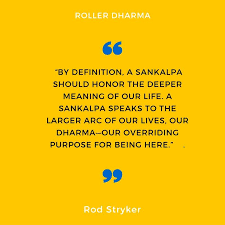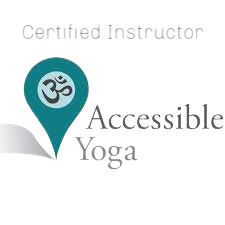One has to only spend 5 minutes on Facebook to see this sense of “otherness” that is sadly part of the division, rage, disconnect and violence that we see in the world today.
Personally, I see the enormous potential of social media to engage from a space of connection with a focus on transformation. This can be solidly grounded in ethics, values, common sense and spirituality without a need to look at another human being as other than human, (yes, even the folks that perpetuate “otherness” with their posts).
This sense of otherness brings us into the arena of conflict where certainty reigns and absolutes are the name of the game. If you are not for me, you are against me! Any belief system that can look at another human being as other than human based on how their belief differs from yours is suspect. This is easy for us armchair warriors to judge fundamentalists. But where does this show up for you? How are you, in reaction to what triggers you, perpetuating this sense of otherness?
I will share how that reared and still occasionally rears it’s ugly head with me. I am a life long activist and during the 2004 election, campaigned for the Kerry Team. George Bush came here to my small city in the fall of 2004 and with all my self righteous indignation, went to protest his presence here. My husband, daughter who was four and son, then eight all went down with handmade signs. We positioned ourselves at the corner of Market Street right across from the War Memorial. Some of the slogans we chanted were, “Bush Lied! Thousands died!” What happened for me then was I looked across the street and saw lines of people, some of them were people I knew and cared about. I looked down and saw my son yelling. I saw some of these people across the street yelling at us. Everybody yelling. Nobody listening. Everyone angry and enraged. I became almost physically ill and grabbed my husband and family and we went home. I spent the night deep in thought, meditation and prayer. Make no mistake. I did not change the way I felt about the policies of the Bush administration, nor did I water down my convictions or my political activity. However, I became convinced I cannot express my convictions at the expense of making someone, in this case, my own neighbors who think, feel and believe differently than me in to “others.”
This speaks to difference versus “otherness”. Some of our differences can be celebrated. I love celebrating and learning about cultures different than mine. I love meeting people from different parts of the world and hearing about their lives. Music. Food. Culture. Celebrating and honoring difference.
Some differences can be painful to explore. Racism. Ability. Sexuality. Privilege. Poverty. We must get in there and ask the hard questions of ourself where we unknowingly might perpetuate otherness here. We may not have created the basic inequalities that are present worldwide, but if we are not an active part of the solution, we are perpetuating these inequalities and harmful differences in this world. We unconsciously are buying into “otherness”
Sacred Activism. That yearning for Justice without perpetuating “otherness” is a path and a call to action in this world that doesn’t involve me screaming at my neighbor.
Justice, in the Oxford Dictionary:
NOUN
1Just behavior or treatment:
a concern for justice, peace, and genuine respect for people
1.1The quality of being fair and reasonable:
1.2The administration of the law or authority in maintaining this:
So this refers to both a concern for peace and the laws we agree to administer to maintain this and to provide accountability when this is violated. There is no call for “otherness”here.
To work for Justice, is to have a genuine concern for peace and respect for people. All people. Even those who trigger you with their beliefs and actions that violate everything you believe in. If their actions violate the agreed upon laws, by all means, hold them accountable, but hold a respect for humanity.
Who can do this? Really? Is it even possible?
One of the humblest examples I can give to bite my own reactionary tongue is that of Carrie Ten Boom, Holocaust Survivor, who lived and embodied the Gospel of Peace in her challenging mission of healing her own oppressors, the German camp guards who committed some of the greatest crimes against humanity we have ever known. This excerpt is from her book Tramp for The Lord.
“Now he was in front of me, hand thrust out: “A fine message, fraulein! How good it is to know that, as you say, all our sins are at the bottom of the sea!” It was the first time since my release that I had been face to face with one of my captors and my blood seemed to freeze. “You mentioned Ravensbruck in your talk,” he was saying. “I was a guard there. But since that time,” he went on, “I have become a Christian. I know that God has forgiven me for the cruel things I did there, but I would like to hear it from your lips as well. Fraulein—” again the hand came out—”will you forgive me?”
And I stood there—and could not. Betsie had died in that place—could he erase her slow terrible death simply for the asking? It could not have been many seconds that he stood there, hand held out, but to me it seemed hours as I wrestled with the most difficult thing I had ever had to do. For I had to do it—I knew that. The message that God forgives has a prior condition: that we forgive those who have injured us. “If you do not forgive men their trespasses,” Jesus says, “neither will your Father in Heaven forgive your trespasses.”
Still I stood there with the coldness clutching my heart. But forgiveness is an act of the will, and the will can function regardless of the temperature of the heart. “Jesus, help me!” I prayed silently. “I can lift my hand. I can do that much. You supply the feeling. “And so woodenly, mechanically, I thrust my hand into the one stretched out to me. And as I did, an incredible thing took place. The current started in my shoulder, raced down my arm, sprang into our joined hands. And then this healing warmth seemed to flood my whole being, bringing tears to my eyes. “I forgive you, brother!” I cried. “With all my heart!” For a long moment we grasped each other’s hands, the former guard and former prisoner. I had never known God’s love so intensely as I did then.[9]
Namaste. It is certainly an ancient Sanskrit word that through the explosion of yoga has entered mainstream culture. But really, embodying this word.
The light in me recognizes the light in you. When that light in me sees the light in you, there is no separation between us.
This light is in everyone. You. Me. People you love. People you don’t even know. People who trigger you by their different color skin, religious belief, sexual preference, political affiliation, sports allegiance. The list goes on. The truth is the light that is in you, is in everyone.
Namaste




